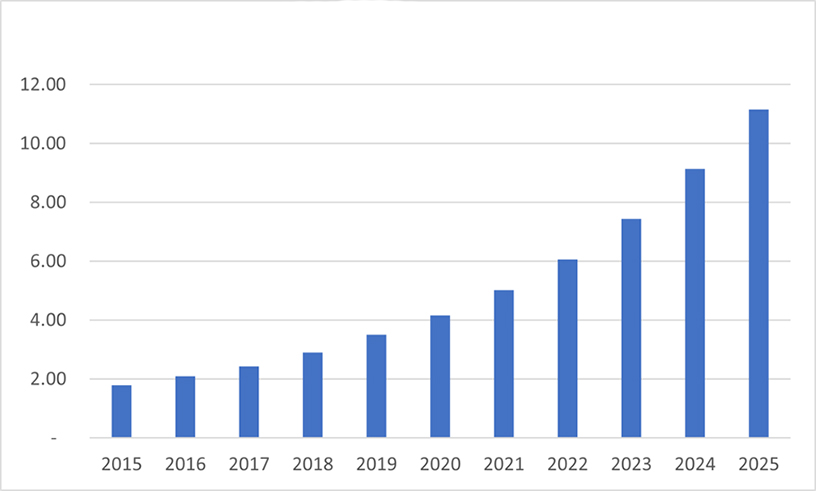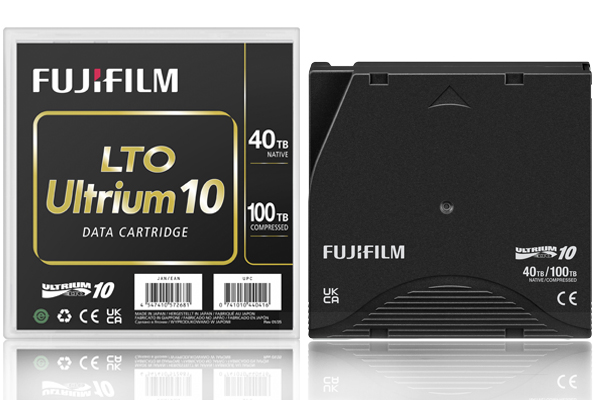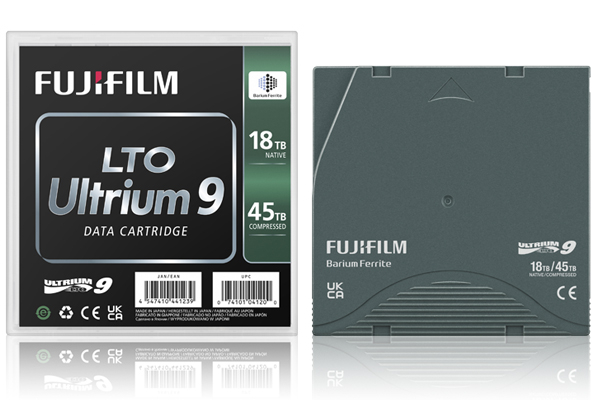As the global economy continues to generate exponential data growth, the energy-intensive IT industry must take action to reduce its carbon footprint. There are many steps Fujifilm has taken to meet our climate change commitments and improving IT sustainability is a part of them. Fujifilm's dedication to sustainability starts with manufacturing eco-friendly forms of data storage - tape which stores your data and reduces your carbon emissions.
![[photo] Sustainable Data Storage and Fujifilm](https://asset.fujifilm.com/www/kr/files/2025-07/33fe58225437796f5abc63be51f095f6/pic_ltotape_01.jpeg)
Carbon emissions are projected to balloon because of the energy that will be needed to sustain the rapidly growing volumes of data anticipated with the continued evolution of the IoT/DX economy. Curbing such emissions is a pressing concern that requires an urgent response.
According to IDC whitepaper,Accelerating Green Datacenter Progress with Sustainable Storage Strategies, the amount of data stored in data centers is expected to grow by 27% each year through 2025, and energy consumption increased by 31% from 2017 to 2020.

Expanding the use of tape storage can positively impact sustainability goals. In a scenario in which an increasing amount of data to be stored is designated as “archival”. From 2019 to 2030, 80% of archive data to be stored on enterprise storage systems and 57% of replicated data to be stored on enterprise storage systems is migrated to tape.
As much as 60% - 80% of stored information is “cold data,” which is rarely accessed but still has value and cannot be deleted. It is estimated that if 60% of all the stored information in the world were moved to tape storage, carbon dioxide could be reduced by 72 million tons over ten years.
*According to a study by Brad Johns Consulting, comparing the average cost for disk and tape used for archiving over 10 years.
![[chart]Compared to hard disk drives, tape can drive a reduction in carbon emissions of as much as 95%.](https://asset.fujifilm.com/www/kr/files/2025-07/66afea2dae004eca2fb7e601e3b635ff/fig_ltotape_04.png)
Improving Information Technology Sustainability with Modern Tape Storage
Discover tape's role in trimming the environmental impact of data storage in this whitepaper from Brad Johns Consulting. Download this free whitepaper to learn more.
IDC: Accelerating Green Datacenter Progress with Sustainable Storage Strategies
Find out how data centers are improving the sustainability of their facilities and infrastructure in this report from IDC.
Download this free whitepaper to learn more.
A roundtable discussion among experts from Microsoft Azure, CERN, IBM and Brad Johns Consultants
Are you looking for sustainable storage solutions? Is tape storage really eco-friendly?
Listen to a group of industry experts discussing how tape storage helps to cut 95% CO2 emission and reduce 80% of e-waste.
Speakers:
Jason Adrian, Principal Hardware Architect for Microsoft Azure Storage.
Vladimir Bahyl, Expert at tape archive at CERN
Shawn Brume, Hyper-growth Storage Product Manager at IBM
Brad Johns, Brad Johns Consultants
"Energy hungry server and HDD farms are forcing hyperscale data centers to move as much low-activity, archival and cold data to tape as possible to minimize energy consumption. As a result of these forces, tape has become a pressure relief valve for unabated hyperscale expansion".
- Fred Moore, President, Horison Information Strategies
"As I mentioned last year, tape is not dead and is far from disappearing anytime soon. As a matter of fact, tape is very likely to become even more popular because of its cost profile and energy efficiency as a medium and its seemingly unlimited ability to store exponentially growing amounts of data".
- Christophe Bertrand, Senior Analyst, Enterprise Strategy Group
"By identifying cold data and moving it to modern data tape storage, organizations can dramatically reduce energy consumption and associated carbon emissions while also lowering data center capital and operational expenses".
- Brad Johns, Brad Johns Consulting LLC
"Some organizations use low-cost disk for archival purposes, and while it is less expensive than SSD and performance HDD technologies, it is inherently more expensive than tape and has a higher total cost of ownership associated with power and cooling".
– Phil Goodwin, Research Director, IDC










